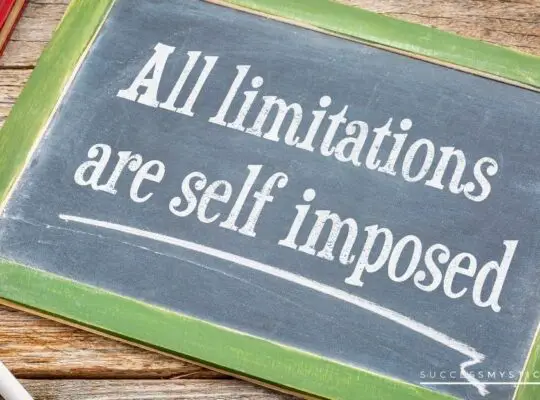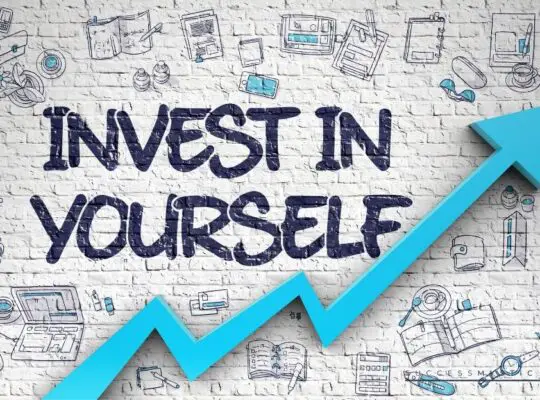External influences and voices influence our lives. It’s time to transform the quality of life by improving the quality of the voices you allow to entertain your consciousness.
Influence
Influence. It is a powerful word.
The dictionary defines influence as
Noun: “the capacity to have an effect on the character, development, or behavior of someone or something, or the effect itself.”
Similar:
- effect
- impact
- control
- sway
- hold
- power
- authority
- leadership
- guidance
- direction
Verb: “have an influence on.”
Everything In Our World Has The Power To Influence Us
Parents, partners, friends, books we read or anything we read such as newspapers and magazines, tv, politics, bosses, co-workers, social media, media, the past and much more.
We can be influenced by things we hear and see. Influence can change our ideas, our characters, and our actions. External voices, whatever their form can influence our beliefs, who we are and therefore can be a driving force in molding our lives.
Who Or What Do You Turn To For Counsel?
We all have the capacity to be influenced by external voices and things, but do you seek them out or, does it happen naturally? If it’s the latter, then there’s a good chance you aren’t choosing the wisest counselors you could be.
The things you read, the information you hear, the visuals you see, and the people who guide you all play a role in shaping your thoughts and actions. And, if you do not consciously seek wisdom, you may just fall prey to toxic influences.
You have reached a point in your life where you are seeking wisdom for yourself. Something has brought you here to read this, which suggests you are smart enough to recognize that you’ve been on the wrong path so far or, you’ve taken a brief detour from the right path.
A lot of things in life can make us reassess things. A breakup, a death, a move, a career change, a promotion, demotion, or general unhappiness. You hold on to painful memories and hurt from your past and you have a host of issues chasing you down on a daily basis.
You’ve sought advice from good friends, you’ve tried meditation and prayer, but you still feel stuck. When you feel stuck where do you go? How do you find the right counsel?
Whatever the counsel, whether it’s an official therapist or a wiser mentor, you need to do some pre-work. If you want wise counsel that is appropriate for your life, then you need to seek out someone who aligns with your values and beliefs.
Do you know what your values and beliefs are? If you’re an evangelical Christian, then you may feel comfortable seeking the wisdom of an elder or a minister in your church.
But an agnostic will not find the same wisdom in this place. So, having a keen understanding of what you believe, what your worldview is, and what values you hold dear, will help you find the right person. Having those clearly defined will guide you to choose someone (or something) with the right wisdom.
Defining Your Values
Step 1
You should make a list of at least five values and as many as ten. Seek out an online resource with a long list of values that you can read through as this may help trigger some ideas (ref.).
Some examples include security, loyalty, compassion, fitness, connection, survival, creativity adventure, nature, success, and learning. Narrow it down to five to ten core values and understand, values shift.
As you grow and evolve as a person, your values can change. So, if you don’t feel as connected to some of your selections further down the line, reassess your values. Your values aren’t there to hold you hostage, they’re there to guide you to act in alignment with your true self.
I would suggest you revisit your values at the change of every season. This will serve as a period of self-reflection and help you build self-awareness.
Step 2
Sometimes, the people you love and cherish most are a personification of your values. So, think about at least two of your favorite people and ask yourself why they’re so important to you. If you can’t narrow it down to just two people, you can add more, just keep it at five or fewer. Write out each of their names and think of what values you believe they embody.
For example:
- My grandpa for his sense of adventure and deep compassion.
- My spouse for their love and honesty.
- My minister for their wisdom and listening skills.
- My best friend for their loyalty and good humor.
When you look at the values you identified for your friends, do you see a pattern that aligns with your own values? There’s a good chance you value them so highly because of those shared values, whether you have thought about it or not. However, by identifying those specific values you can recognize your own values.
Step 3
Often, the careers we choose are a reflection of our values. At least, I hope that is the case for you because if you pursued a career that doesn’t align with your values, there’s a good chance it’s making you miserable. If you value financial security but struggle financially as you balance several part-time jobs, then that’s not a great place to be in.
If you value autonomy, but you sit on the bottom of a chain of command, then it’s not ideal. The point is, your values should hold sway over your work decisions, career choices, and transitions. So, you may want to speak to a career counselor.
They can help you identify your values, assess your skills, and set you off in the right direction.
Step 4
The beauty of the internet is that the world’s knowledge is at your fingertips. Find a free values inventory (ref1. , ref2.), and build your blueprint for life moving forward.
Step 5
Now that you’ve defined your values, you should be mindful of them when making decisions. So, for the next week, put conscious effort into labeling your values as you make key decisions (at home and work). Pay close attention to whether your values are reflected in daily life and if not, what values you do express throughout the day. You may find a pattern of behavior that describes a value that fits better. Or you may recognize a stumbling block that has prevented you from living your value. If you feel dissatisfied with a lot of your choices, you need to look at how you’re living your values. It’s at this point you need to re-evaluate your priorities.
Step 6
You can learn a lot about your values by thinking about your life’s bitterest and sweetest moments. It’s in these moments you see what you care most deeply about.
For example, what’s your greatest career moment? What value does that suggest? It is leadership or motivation? What is the worst pain you’ve experienced? What values speak to you now when you think back on it? Is it compassion? These moments lay us bare and can provide great insight into key values.
If you believe two or more of your values are in conflict, know that this is natural. You will find this happens from time to time. You have to choose one or the other, but you need to know why one outweighs the other.
Other people might be guided by negative values, but you can’t control that. The only thing you can control is how you allow your values to guide you. That’s how you set your priorities, that’s how you make decisions, and that’s how you live authentically.
6 Key Traits Of Wisdom
There are a few key traits you should seek out from your counsel.
1| A Good Name
Whatever counsel you choose, reputation matters. Has someone else sought counsel from this person or thing? Podcasts, books, and information often come with reviews so, dig into those before you settle. The same goes for a person.
If it’s a professional, you will find online reviews that should give you a clear indication of what they’re all about. If it’s someone you know in real life you would like to seek counsel from, then you can speak to others who know this person.
Ultimately, you won’t know if it’s a perfect fit until you engage with this person. However, doing the pre-work will help you establish who you are, what you want, and you will quickly see whether you’re compatible.
2| A Willingness To Wound
A wise counselor isn’t afraid to deliver home truths when necessary. While they will offer you encouragement and words of affirmation, they also have to be honest. They aren’t there to be your friend, they are there to literally counsel.
That means they need to be willing to have uncomfortable conversations that force you to look inside yourself. They make you squirm, they force you to challenge your beliefs, and see things from another perspective.
Some of them may even give you homework to work on yourself and get out of your comfort zone. It’s all good and a wise counselor will force you to get comfortable with discomfort.
3| The Ability to Encourage
Just as they should be able to make you uncomfortable, they should also have the ability to encourage you. Having a wise adviser can help you find success. You should have a team of wise people you can turn to, whether it’s one at a time or they serve specific purposes. You wouldn’t ask your primary care physician to cut a brain tumor out, you would see a specialist.
You wouldn’t seek the wisdom of your minister to assist you with IBS, but you’d ask them spiritual questions. A wise counselor recognizes their limits and will encourage you happily.
But they should also be wise enough to encourage you when to seek another adviser. The counselors in your life shouldn’t serve as your friend, parenting guru, financial adviser, nutrition expert, mentor, and spiritual support. You need lots of wise voices you can turn to at the appropriate time.
4| Words Of Restoration
Wise counsel will deliver words that help you heal and restore. They’re life-giving. That doesn’t mean they’re all shiny, happy comments that make you feel amazing. The truth can hurt and a counselor recognizes that words of restoration may be encouraging or a reproach.
In any situation, wise counsel promotes life. So, when you seek counsel from wherever. Ask yourself whether this advice or guidance is helping to speak life into your general life and into your significant relationships.
5| Homework
Sometimes, you can glean wisdom from even the oddest of places. A wise counselor looks to everyone and everything to learn more about the world. Even ants could teach us quite a lot. They don’t have ears or lungs, but they have super-strength, two stomachs, and they can farm too.
This tiny little creature is one of the strongest creatures, able to lift 50 times its body weight. If they’re dealing with something bigger, they all rush to aid their team.
The point is every day is a school day, and wherever you seek counsel, it should be from someone who is constantly growing and learning. You don’t want to stand still, so it’s important that your mentor feels the same.
6| Recognizes Limits
A wise counselor recognizes their limits. They know when to speak and when to listen, and they know when it’s best to sit and comfort someone in silence. A lot of life is beyond our understanding. It’s difficult to find meaning when dealing with the pain of grief after losing someone close to you. In those moments, you don’t want advice.
You want someone to sit in your pain with you. A wise counselor recognizes that and knows when it’s time to encourage you beyond that. Nobody can fix your broken marriage or bring someone back from life; the purpose of wise counsel is to help you recognize what you need to do to heal.
Your Choice
While choosing wise counsel will not guarantee your success, it will certainly ensure you live in alignment with your values. And, by living in alignment with your values, you increase your chances of success. Of course, success is subjective.
What you view as success may not be what someone else sees as success. An important reminder that external voices can weigh you down if they are the wrong voices. So, while you’ve figured out your values and you have found many sources of wise counsel, you should take time to define success for yourself too.
You will only take from counseling as much as you are willing to put in. There’s a lot of work involved, and if you’re willing to do it, then you’re going to be okay.
Why Wise Counsel Counts
Encouragement is what helps you keep moving forward. While it’s vitally important that you possess the ability to motivate yourself, it’s also nice to have an external source of encouragement for the difficult periods that life delivers.
Sometimes, it takes several steps back to move forward, that’s typical of progress. It can be incredibly frustrating when all you want to do is keep moving forward. This is typically when your intrinsic motivation struggles to keep your head above water and why it’s so important to have outside voices that lift you up.
We all need someone to cheer us on when we face setbacks. Having wise counsel gives you an example to follow in your own journey towards progress.
Wise counsel can also help you recognize opportunities to grow. Whether it’s a book filled with great advice that will help you save your marriage or a wise word when it’s needed most.
Wise counsel can recommend workshops, podcasts, books, conferences, or even other counselors who can help you on your journey. We already highlighted how important it is for a truly wise person to know when they’re not capable of helping, it’s just as important that they can guide you to someone who can.
It’s easy to lose focus and motivation when you feel alone. When you feel alone in a struggle or on a long journey, you can get stuck in your own head. It’s easy to convince yourself that nobody else has ever faced the same struggles you are facing now.
But, when you have wise counsel to turn to, there’s a voice there to remind you that you’re not alone and you’re not the only one who has been through something like this.
Your wise counsel will encourage you to keep pushing forward, help you see opportunities for growth, and provide you with some company when you grow weary on your journey. You don’t have to do anything alone.
9 Ways To Find Wise Counsel
You might be able to move faster alone, but have you ever stopped to consider you could be moving in the wrong direction? It’s perhaps one of the greatest arguments for needing wise counsel, but you’re already on board. So, the question now is how do you find wise counsel?
It’s a big decision and already mentioned, it can be a person, many people, a book, podcast, or something else. You can have more than one source of wise counsel. However, there are certain questions you should ask yourself before you seek this counsel out.
1| Experience
If it’s a person, do they already have someone they counsel or advise? While experience is wonderful, it’s also important to know if this person is too busy to offer you what you need.
It’s vitally important that you can turn to this person when you need them and that they are available to provide you with what you need. It’s for this reason that you can’t just decide in your head that this person is your wise counsel, you really do need to speak to them about it so they realize the importance you are placing on your conversations.
2| Recognition
If you’re seeking out a mentor type of wise counsel for professional reasons, you should consider whether this person is recognized as such within your organization. You want to choose someone with the wisdom to guide you, but they also need to have the respect of their peers and get along with the people around them. Otherwise, you can’t be sure they have your best interests at heart.
3| Qualities
Obviously, this person should have some of the qualities you yourself have or are seeking. But it’s also important that they have leadership skills and a certain level of professionalism. Again, this is particularly important if you’re seeking wise counsel in a professional capacity.
4| Knowledge
Does this person have the knowledge you seek and the skills you wish to possess? It makes more sense to seek the wise counsel of someone who has what you want or is at least further in their journey than you are. You don’t want to choose someone simply because they’re popular or well-placed. You’re seeking wise counsel.
5| Honesty
We already covered the importance of wise counsel and honesty. You need someone who will be open and honest with you, even if it’s tough to hear. So, when you’re considering people to serve as wise counsel, you should certainly ask yourself whether they will be honest with you.
That isn’t the end of the search, there is more to consider. There are certain things you should look out for. You already spent some time working out your values and you understand the importance of seeking wise counsel from someone who shares those values.
However, not everyone with the same values will always agree or be compatible. For example, you might want to seek religious counsel, just because someone is religious doesn’t mean they will share your identical values. Just as someone who isn’t religious could potentially share your values. Thus, compatibility has entered the chat.
6| Compatibility
Think of wise counsel as a type of mentor, it’s someone you will work closely beside. So, compatibility is vitally important. You don’t want a strained relationship with someone who is supposed to guide you with wisdom. You don’t want it to feel forced or awkward either. That being said, it will take some time to get to know someone if they are relatively new to you on this deeper level. So, don’t cut them off too quickly if you don’t jive.
Give it some time and look for cues that suggest there could be a long-term conflict. Don’t be afraid to address these concerns because if you’re feeling them, it’s likely they are feeling the same way.
If you ever find yourself in an assigned mentorship situation, then there’s a good chance you feel stuck with the person. That isn’t always the case, you can always speak to someone about why you don’t believe this relationship will succeed, but you should at least speak to the other person before you escalate it.
7| Expertise
You don’t need to seek the counsel of someone with the most important-sounding job title or even someone who has the most experience. It’s more about finding someone with the right expertise and knowledge to guide and correct you on your particular journey. You want someone with experience in what you’re going through, someone who’s faced similar challenges, and can offer advice accordingly.
If they’ve been through it, then there’s a good chance they have some wisdom to offer. For example, if you are going through the grief of losing your spouse, you might not find the best advice from someone who has never been in a relationship or experienced grief. That person might have something else to offer you at another time though.
8| Contrast
Truly wise counsel should help you get out of your comfort zone so, you might want to seek someone from outside your comfort zone right off the bat. While it’s important you have shared values and that you’re compatible, they don’t need to be a clone of you.
Diversity is a good way to ensure you’re getting different perspectives and looking at the situation from all angles. So, don’t be afraid to seek counsel from someone of a different sex, orientation, or even age.
There is some value in someone who thinks differently about certain things than you. And, unless you are specifically seeking professional advice, you don’t need to seek counsel from someone in the same profession either. Sometimes you need to turn your viewpoint upside down and rethink everything.
9| Trust
It’s vital that you trust anyone you seek counsel from because you will share things in confidence. It’s important that this trust is a two-way street because the best relationships are always a healthy balance and give and take. Build this relationship on mutual trust to ensure you both get the most out of it.
Don’t get too caught up in the excitement, you will need to take it slow, especially if you are relatively new to each other on a personal level. Sit down and get to know each other before you dive in.
Once you’ve solidified some trust you can move forward with counsel. You want someone who will ask you tough questions, challenge you to improve, offer genuine feedback, whether negative or positive and someone who will help you succeed.
Key Steps To Choosing Wise Counsel
- Seek counsel from someone who shares your definition of success and some of your core values. As mentioned above, you’re not looking for a carbon copy, but if you both have the same view of success, you can rest easy knowing this person is offering advice that matches your goals. Again, don’t be afraid of differences between the two of you, it’s always good to have someone willing to challenge your opinions and force you to think about why you believe certain things.
Even better if they can challenge you in a way, you particularly need to be challenged. For example, someone whose greatest strength also happens to be one of your weaknesses. Finding a true master will force you to grow and challenge you to push yourself outside your comfort zone.
- Whatever you need counsel for, seek out someone who has been there and done that. You’re looking for someone who has a head start on where you are. Know what it is you’re trying to accomplish because when you do, you will have a better idea of the type of wisdom and counsel you are seeking.
- Ideally, the counsel you seek out will be just as interested in building a relationship as you are. If you’re seeking the wise counsel of another person, be sure they have the capacity to offer you what you’re looking for. If they’re not, they won’t be invested in your success, and they either won’t offer wise advice or will not be available when you need them.
- Don’t let this person be someone you turn to only when you’re in trouble or in need of advice. Trust is a big part of this process so you should reach out to them fairly often for coffee meetings, lunch, or a casual catchup.
Perhaps you share a love of soccer, fishing, or knitting! Whatever commonalities you have, I would encourage you to explore them in a social setting so that you can build a solid friendship as well as for counsel.
Again, this will all depend on the type of counsel you are seeking. To use grief as an example again, a social network of people also grieving can help you work through the stages of grief, offer you new outlets, and provide you with much-needed social connections.
However, if you have a delicate matter to discuss and it’s only a one-off, you won’t need to go to such great lengths to seek out a deep relationship. It might be as simple as reaching out to someone you know has been there and having a conversation over coffee.
Of course, this is another important aspect of choosing wise counsel. What are you seeking and what level of commitment does that require? That will help you determine how to proceed.
Final Thoughts
It isn’t just people you can seek as wise counsel. You can also take counsel from the things you read, the pictures you see, the content you consume, and the world around you. Be brave and don’t be afraid to tap into any wise counsel you see.
It’s worth thinking about the type of information you take in because humans have a tendency to internalize the content they consume. That is what helps shape your thoughts, which is what helps spur your actions, which is what will determine whether you succeed in life or not.
That might sound dramatic, but the global pandemic has highlighted just how much media consumption can impact our mental health. You need to think about how much time you spend with bad news and how that could be contributing to any upset you may be feeling. This is why it’s so important you know how to seek wise counsel and more importantly, whose counsel to seek when you are in need.
Consider writing out a list of issues you frequently face or have faced in the past. The type of issues, problems, or situations where you could have used wisdom. For each of these, think of someone or something in your life that could have provided you with kernels of wisdom if you’d thought about it at the time. You don’t need to live by this list, it’s just a good exercise to remind you of how much wisdom surrounds you.
And it’s a nice reminder that you have people in your corner who are ready to support you if you are brave enough to ask them for help. Remember, there is more than one way to seek wisdom, and different wisdom will come in handy for different situations. Perhaps the biggest step in seeking wise counsel is recognizing what you’re looking for and who is best suited to offer you what you need.
So, in the future, where will you seek your counsel?







